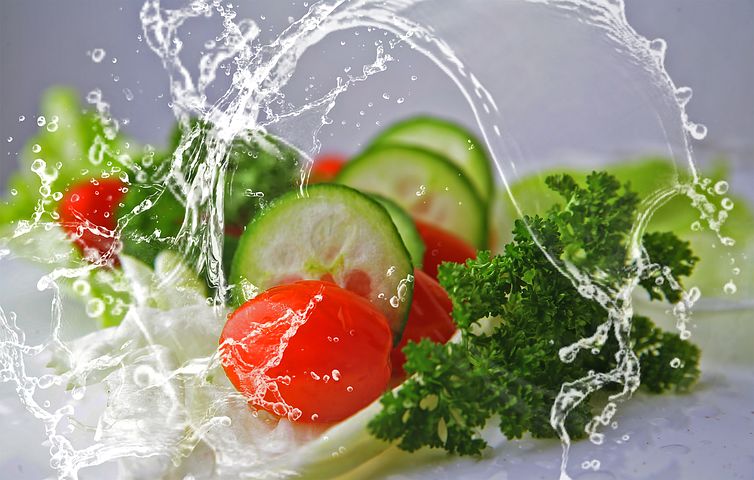What are the Best Oral Vitamins and Minerals for Your Skin and Hair?Vitamins and minerals are crucial to maintain healthy skin and hair. Whether consumed through supplements, food, or drink, vitamins and minerals provide your body with the essential nutrients it needs to work properly. Sadly, though, many adults in Canada are missing out on a healthy amount of key vitamins and minerals, such as vitamin A and D. And this can lead to serious effects over time. If you’re concerned about the condition of your skin and hair, increasing the amount of vitamins and minerals you put into your body can help. But which should you focus on? The best vitamins for your skin and hairThe skin plays a critical role in protecting your body and vital organs from external harm. Keeping it as strong and healthy as possible is paramount to help it do its job. And while hair loss is often caused by genetics, illness, or medications, poor nutrition can be a major contributing factor too. Here are the best vitamins for your skin and hair health: Vitamin AVitamin A promotes good health in the skin and helps to defend the body against infection or illness. Your immune system can’t function at its best without an adequate amount of vitamin A. If you’re prone to acne or occasional breakouts, consuming a healthy amount of vitamin A can help. Vitamin A also aids the skin glands’ production of sebum, the oily substance that keeps the scalp moisturized and healthy. Hair loss is a potential symptom of vitamin A deficiency. How much vitamin A do you need per day?
How can I get vitamin A? You’ll find vitamin A in oral supplements (e.g. multivitamin tablets) or the following foods:
The following foods contain beta-carotene, which the body converts into vitamin A:
Vitamin EVitamin E is helpful for maintaining skin health and strengthening the immune system. It can also absorb energy from ultraviolet (UV) light, which may help to reduce the severity of sun damage and common signs of aging (e.g. wrinkles). Another benefit of vitamin E is that it may help to prevent hair loss, as it’s an antioxidant. One study found that taking tocotrienol (part of the vitamin E family) supplements led to increased hair growth. How much vitamin E do you need per day?
How can I get vitamin E? Aside from supplements, you can find vitamin E in:
Vitamin CThe human body needs vitamin C to keep cells healthy and protected. It also cultivates strong skin, bones, cartilage, and blood vessels, so it’s crucial for healing wounds. Vitamin C also contributes to proper collagen production and function. That keeps the skin firm and youthful, reducing the likelihood of developing sagging skin. And collagen is a key part of the hair’s structure: the hair is mainly composed of keratin (a protein) and amino acids found in collagen help to build keratin. More vitamin C should mean healthy collagen production and, hopefully, healthy hair. It also helps to defend hair follicles against damage and could reduce the risk of hair thinning. How much vitamin C do you need per day?
How can I get vitamin C? You can get more vitamin C from oral supplements and the following foods:
Vitamin DVitamin D aids the formation of new hair follicles, and hair loss/thinning is one potential symptom of a deficiency — a study found that one group of female participants affected by hair loss had lower levels of vitamin D. It can also help the skin by reducing inflammation and decreasing harmful environmental oxidants. How much vitamin D do you need per day?
How can I get vitamin D? You can get vitamin D from oral supplements and a number of foods and drinks:
The best minerals for skin and hairHere are a few of the best minerals for skin and hair health: ZincZinc regulates the skin’s oil production and can defend against premature aging. It also increases the speed with which the skin heals from an injury. Zinc may inhibit hair follicle regression and aid follicular recovery too. You can get zinc from:
CalciumCalcium is well known for building strong bones and teeth, but it’s also essential for maintaining the skin’s elasticity and firmness. On top of this, upping your calcium intake can help the body absorb iron, which is necessary for healthy hair growth. You can get calcium from:
PotassiumPotassium can combat dry skin by keeping it hydrated and moisturized. Hair loss is one potential sign of a potassium deficiency, as cells may not function properly and the hair growth cycle can become disrupted. You can find potassium in:
ConclusionIncreasing your vitamin and mineral consumption should improve your skin, hair, and overall health overall. Adjusting your diet can take time, so you may decide to start with oral supplements instead. Faster solutions are available, though. For example, one of the quickest and simplest ways to up your vitamin C intake is to try a vitamin C IV treatment. This introduces vitamin C directly into the bloodstream for better absorption, whereas vitamin C-rich foods must pass through the digestive system first. This can promote healthier collagen production, fight against damaging free radicals, and decrease toxicity levels. Our Glutathione IV treatment is also designed to improve the skin’s health and appearance. It can achieve a more even skin tone, reduced visibility of hyperpigmentation, and less noticeable freckles/blemishes. Contact our team now to learn more about both of these treatments at Astra Medicare!
0 Comments
Your comment will be posted after it is approved.
Leave a Reply. |
AuthorDedicated and passionate Astra Medicare staff. Archives
June 2024
Categories
All
|


 RSS Feed
RSS Feed